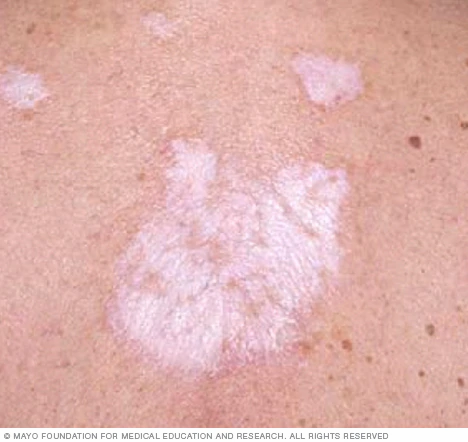Jan 17th is World Lichen Sclerosus Day
- Goneuptothesky

- Jan 18, 2021
- 3 min read

What is Lichen Sclerosus? Lichen Sclerosus, also known as White Spot Disease, is a rare, chronic skin condition which causes blisters, ulcers, white patches, burning, splits/tears, clitoral shrinking, labias fusing together, and a narrowing of the vaginal opening. It occurs more frequently among pre-menstruating and post-menopausal women, but it can happen to anyone with a vulva and can also appear around the anus. It can arise in men as well, with a woman to man ratio of 1 to 6. With symptoms like these, this could easily be confused with Vulvodynia, Interstitial Cystitis, or an infection (BV, yeast, or STI), which is why it’s important to get a proper diagnosis from a professional. A gynecologist or a dermatologist who specializes in this is your best place to start. All of the side effects caused can also manifest Vaginismus, since a painful vulva leads to painful sex, and these conditions tend to travel in pairs. A similar condition is Lichen Planus, which is when the immune system mistakenly attacks cells of the skin and mucous membranes. This one occurs elsewhere on the body as little purplish, flat-topped bumps, white patches, or sores and can go away within months with topical creams or antihistamines, as shown below.

What causes it? There are a few different beliefs as to what causes this condition. Stress plays a factor for sure, but so can genetics, and even hormones. Unfortunately, having this issue does increase your chance of getting squamous cell carcinoma or vulvar cancer, but those aren't super common, so don't freak out. As with all women’s health issues, there is still much research to be done to obtain a better understanding of what leads to these serious skin flare ups. It is suspected that this is an autoimmune disorder, but it isn't certain, so it’s important to be careful while COVID-19 runs rampant in our world. While this condition may pop up unexpectedly it won't necessarily stay forever, or even a long time, so take a deep breath and go into tackling it with an open, positive mind.
How do I treat it? Much like other vulvar issues, Lichen Sclerosus has many different treatment methods which won’t work for everyone, so it’s pretty trial and error to fix it. Seeking out a referral for a pelvic floor physical therapist is definitely a good idea, as they can help you stretch your vagina and work on exercises to strengthen your pelvic floor muscles and alleviate pain you experience internally from what is going on externally. A doctor can prescribe a steroid ointment, calcipotriol, retinoid, or estrogen cream to apply directly to the vulva and heal up the skin to create elasticity and avoid dryness. Some women will get surgery as a last resort to treat this painful condition, which studies have shown to be 95% effective in lessening daily symptoms and achieving pain free intercourse. Rest easy in knowing that this condition isn't contagious and can't be transferred to a partner through physical contact, so you will only ever have to worry about treating it on yourself. At home on your own you can try remedies that alleviate pain for anyone with Vulvodynia, such as sitz baths, washing with just water, and icing the area with an ice pack.

For more information on Lichen Sclerosus you can go to www.nva.org/june-august-2016 to read about updated research from that time period or www.aardaa.org/. You can follow @lichensclerosuspodcast and @lichensclerosusuk on Instagram for updates on how to navigate life with this painful condition. Don’t give up hope. Remember, plenty of us with pelvic pain issues lead successful, happy lives with a loving partner. For advice on handling a relationship when you’re unable to handle penetrative sex, read my blog on gratitude here.



Comments